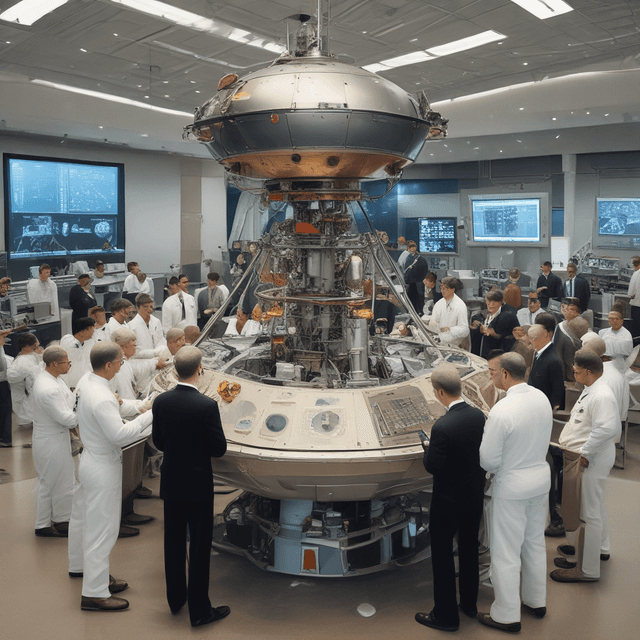
| Name | United Space Directorate (USD) |
| Type | International space agency |
| Scope | Rivals national space agencies in scale and influence |
| Founded | 1972 |
| Purpose | Coordinate and oversee space exploration • Conduct space research • Manage commercial space activities |
| Headquarters | Undisclosed |
| Member states | United States • Soviet Union (now Russia) • Major Western European countries |
| Key achievements | First crewed missions to Mars • Establishment of a permanent lunar base |
The United Space Directorate (USD) is the premier international organization responsible for coordinating and overseeing space exploration, research, and commercial activities globally. Established in 1972 through an agreement between the United States, the Soviet Union, and major Western European nations, the USD has since grown to encompass nearly all spacefaring countries.
The origins of the USD can be traced back to the space race between the US and USSR during the Cold War. Recognizing the potential for national rivalry and duplication of efforts in space, political leaders on both sides pushed for greater international cooperation. This culminated in the signing of the Unified Space Exploration Treaty in 1972, which established the USD.
Initial member states included the US, USSR, United Kingdom, France, West Germany, Italy, and Canada. Over the following decades, the USD expanded to include Japan, China, India, and other major space powers. Headquartered in Geneva, Switzerland, the Directorate is governed by an international council with representation from each member nation.
In its nearly 50 years of operation, the USD has overseen a number of groundbreaking space accomplishments:
The USD is organized into several specialized agencies and directorates that oversee different aspects of space activities:
The USD has an annual budget of over $150 billion, drawn from contributions by member states. This makes it one of the most well-funded space agencies in the world, surpassing even the largest national programs.
The United Space Directorate has become a powerful supranational organization that rivals the influence of individual national space agencies. Its coordinating role and pooled resources have allowed the USD to undertake ambitious projects that would be out of reach for any single country.
The USD's authority extends beyond just space exploration, as it also plays a key role in regulating the growing space economy, from satellite communications to in-space manufacturing. It has also become an important forum for international diplomacy, helping to prevent conflicts and facilitate cooperation between member states.
Critics argue that the USD has become overly bureaucratic and dominated by the interests of its largest contributors. However, proponents contend that its international nature has helped depoliticize space activities and avoid the pitfalls of past national space races. As humanity continues to expand its presence beyond Earth, the role of the United Space Directorate is expected to grow in importance.